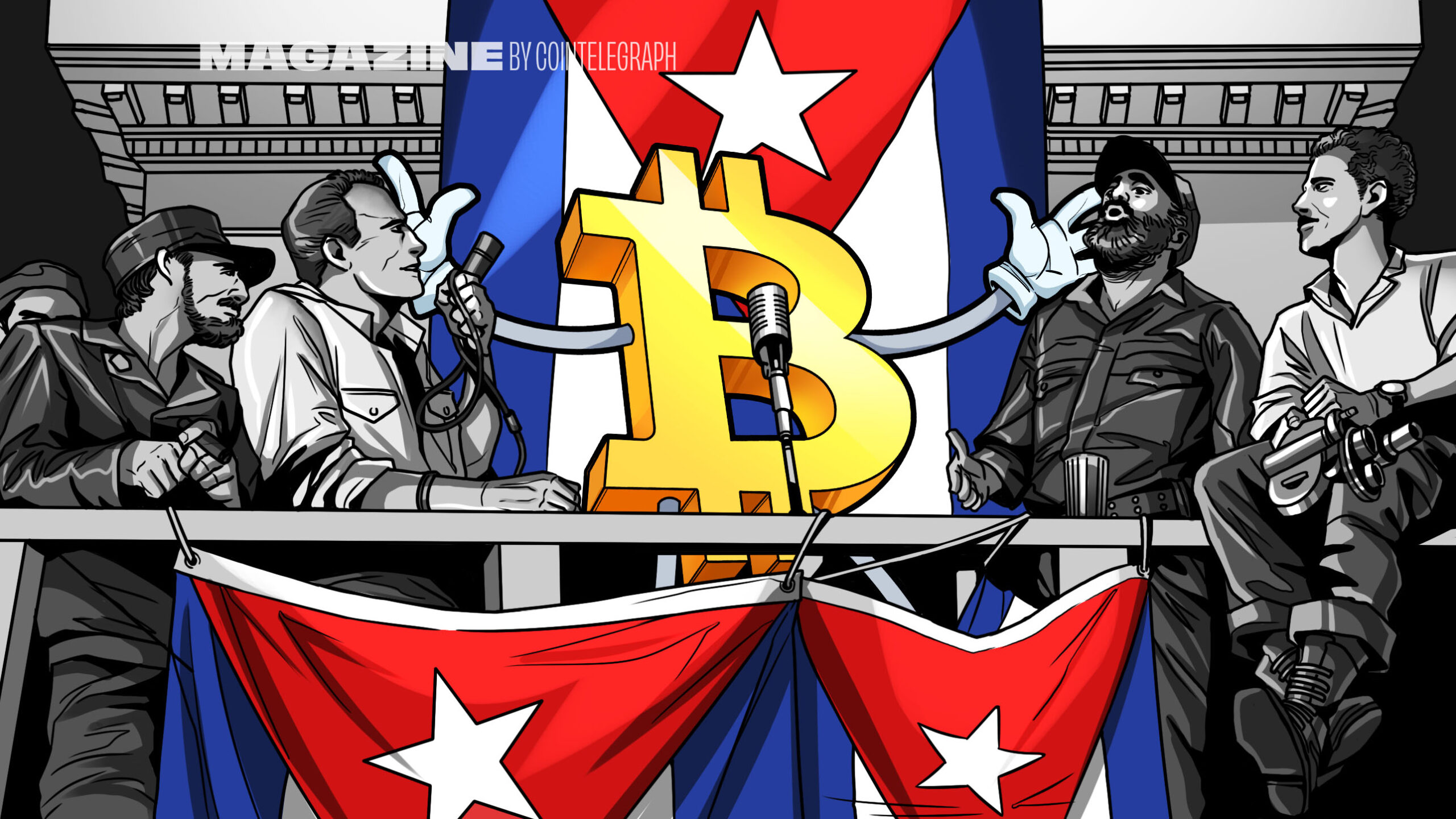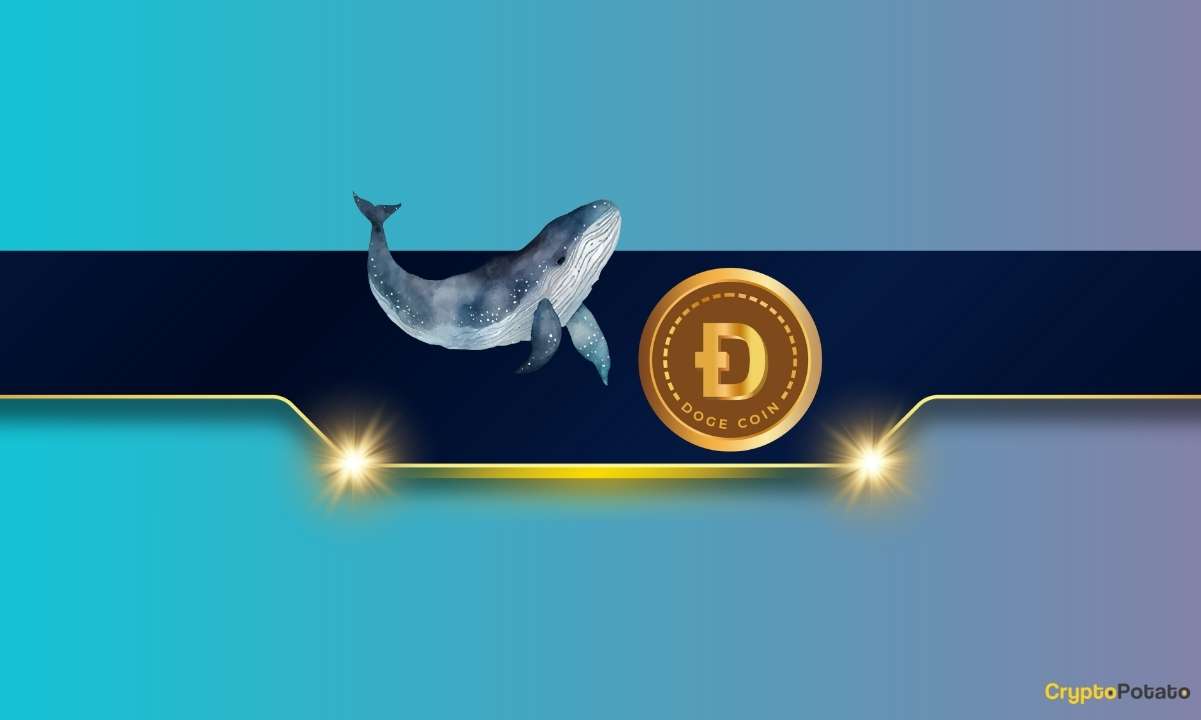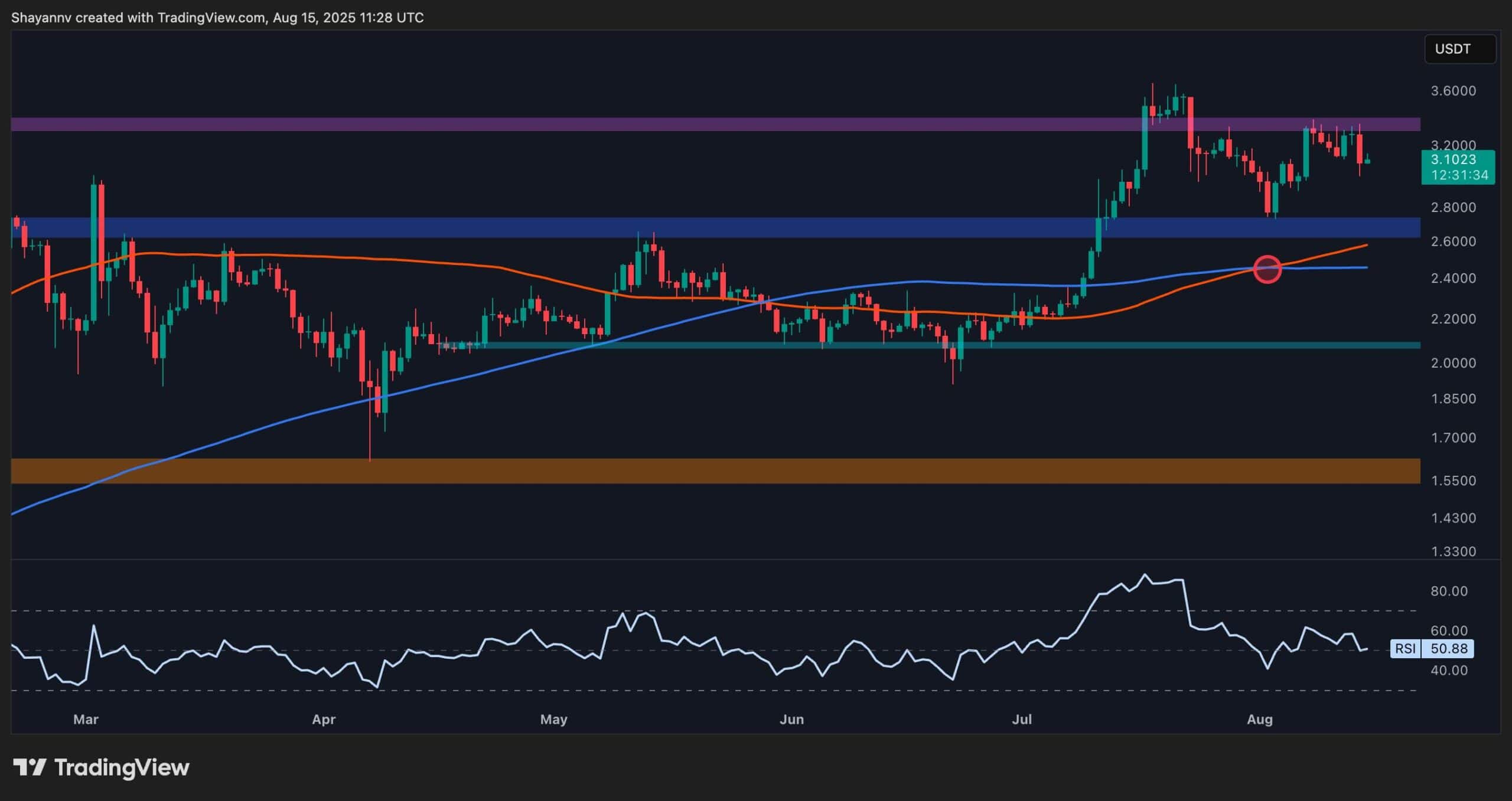Cryptocurrency
The Truth Behind Cuba’s Bitcoin Revolution: An on-the-ground report

In Cuba’s capital, Havana, a Bitcoin community has emerged from an economically antagonistic environment.
“Satoshi didn’t create Bitcoin for Cubans, but it really comes in handy for us,” Forte, co-founder of the aptly named local Bitcoin organization Cuba Bitcoin, tells Magazine.
Cubans are turning to Bitcoin because their money is increasingly worthless. Zimbabwe, Venezuela and Lebanon often compete for media coverage about runaway inflation levels, but the Cuban peso is not far behind.
The Cuban peso has devalued so much over the last few years that carrying bags of cash is increasingly common among the rich and the poor.
In practice, even if someone bought Bitcoin at the top of the 2021 bull run at $69,000, their money is worth much less in Cuban pesos. Whereas Bitcoin dropped 80% to its bear market low, it has since recovered 100%, and the peso has devalued by 90%.
The realization that someone should swap local currency for the Bitcoin top, knowing that it will crash and they’ll still retain more purchasing power, is one of the many financial wake-up calls received while working on Cointelegraph’s new documentary, The Truth Behind Cuba’s Bitcoin Revolution.
In 2021, I came across the article “Inside Cuba’s Bitcoin Revolution” by Human Rights Foundation chief strategy officer Alex Gladstein, in which he explains how and why Cubans were utilizing Bitcoin’s stateless and low-fee properties to save money and escape financial oppression.
In line with the Bitcoin mantra of Don’t trust, Verify, I went to see with my own eyes what Gladstein described.
Camera in hand with my trusty travel partner Paco de la India by my side, I network my way into the Cuba Bitcoin community, which now counts thousands of enthusiasts and advocates.
La Cultura Cubana
Following one of the largest financial conferences in the world, Bitcoin Miami, in arguably the world’s most capitalist arena, the United States of America, I hop across the Caribbean to Cuba, one of the few extant socialist states. The contrast hits me harder than the Cuban tropical heat.
From the moment I landed at Havana Jose Marti International Airport, I noticed some funny quirks: doors open manually (forget automatic sensors), check-in and immigration are done on pen and paper, and the taxis are 1950s Chevrolets.

It’s common to describe visiting Cuba as a time warp. It’s not hyperbole; Cuba cannot access world markets, financial institutions or trade. The United States has subjected Cuba to a trade embargo — the longest in modern history — since the island nation nationalized U.S. oil refineries in 1960.
As a result, Cuban industry, economic output and commerce lag far behind the modern world.
The embargo, coupled with more than half a century of communism, has resulted in a highly educated, extraordinarily literate but desperately poor and hungry population, many of whom possess a heartbreaking desire to leave the island, or in Spanish, to find a “salida” — an exit.
Why stay in a country where a taxi driver earns more than an atomic engineer — and the emaciated engineer struggles to feed their family?
Adopting Bitcoin
In such an environment, it’s a wonder why Cubas don’t flock to Bitcoin as money that exists outside of state control. However, many Cubans are learning about and slowly turning to Bitcoin.
Catrya, one of the main characters in Cointelegraph’s new documentary and one of the founders of Cuba Bitcoin, explains that there could be around 5,000 Bitcoiners in Cuba, and if you include crypto enthusiasts generally, the number is higher still.
Cubans do not have easy on-ramps into crypto. Firstly, those with internet connections cannot sign up for Binance, Coinbase or Gemini due to their nationality. For Cuban Americans on the island, Cuba’s government restricts access to American websites. Cubans buy Bitcoin peer-to-peer through Telegram or WhatsApp groups and at in-person meetups.
What amazes me is the tiny amounts of money Cubans put aside to save money or “stack sats.” Saving 1,000 satoshis (less than $1 a week) is meaningful to a Cuban on $40 monthly. The Cuban peso may not be here in 10 years, but Bitcoin certainly will be.
The peer-to-peer process is straightforward, but it’s not beginner-friendly, and these hurdles can hamper adoption — although they do have a silver lining, as Catrya explains:
“Since we’re denied [access to exchanges] by default for being Cuban, we can never do KYC [Know Your Customer], so that’s a good thing for us, at least in terms of privacy.”
Buying Bitcoin peer-to-peer and storing Bitcoin by taking ownership of the private keys is safer. Customers who trusted custodians such as FTX, BlockFi, Celsius and Vauld with their crypto were wiped out. Cubans don’t have that option, and while it takes longer, it’s more secure.

Erich Garcia Cruz, the founder of QvaPay and BitRemesas — a currency remitter using Bitcoin that boasts tens of thousands of Cuban users — says that the small but growing number of Bitcoin customers somewhat represents Cuba’s fledgling internet culture.
Connectivity and freedom of information
Cubans could get online in earnest from 2013. So, while the rest of the world was enjoying the iPhone 5C and 4G, a few lucky Cubans fortunate to access a computer could get online that year, albeit with an awful internet connection.
Now, Cubans can access 3G and sometimes 4G connectivity on their phones. The tech-savvy and younger Cubans use VPNs to circumnavigate online restrictions.
Generally, the lag in internet infrastructure combined with the cost and difficulty of buying a smartphone on a frighteningly low salary means Cuba is way behind in IT.
In 2021, the World Bank reported that three-quarters of Cuba has access to the internet. But while the issue is improving, internet censorship is rife, and Cubans are repeatedly told to trust the government through state-sponsored TV, newspapers and media.
Independent media publications are classified as “enemy propaganda,” which is something I was made aware of a few times during my investigation. I won’t share those stories here, but it’s safe to say reciting such stories would’ve landed me in trouble had I stayed in Cuba.
Two exiled Cuban journalists have since advised me to avoid returning to the island for some time, especially if the Cointelegraph documentary gets a lot of attention.
A funny caveat to the state-run media is that some Cubans were orange-pilled by Bitcoin proponent Max Keiser. His appearances on the Russia Today news channel were approved for broadcast in Cuba. Some of Catrya’s peers watched the show where Keiser bashes fiat currencies and promotes Bitcoin.
And yet, Bitcoin is magic internet money; it lives on the web. If Cubans aren’t online — or watching Russia Today — how can they know about it?
Orange pill Cuba
Bitalion, one of the Cuba Bitcoin founders, works in telecommunications for the government. He explains that as a privileged public sector worker, he benefits from better internet connection speeds and lower online censorship levels.

Bitalion stumbled across the Bitcoin white paper in 2014 and became infatuated with the idea of an independent, borderless currency. He rhetorically poses the question: For those fortunate Cubans who are able to travel abroad, what can they bring to the new country? The peso in their pocket, or Bitcoin in a mobile wallet?
As with the other Bitcoin advocates on the island, Bitalion volunteers his time to educate people and support Bitcoin adoption. He’s also one of the handful of Cubans running a Bitcoin node. At Cuba’s first-ever Bitcoin-only meetup, he demonstrates to dozens of Cubans how to pay for goods and services directly to his Lightning Network node.
Cruz, Forte and countless business owners explain that Bitcoin is an easy “orange pill” to swallow, particularly for the digitally capable Cubans. You merely explain to them that nobody controls it; it’s stateless money.

At face value, Bitcoin is a useful tool for a country that has been financially and economically handicapped for generations. But for Forte, Catrya and Bitalion, the ideology of Bitcoin resonates strongly.
Forte jokes, “Satoshi didn’t create Bitcoin for Cubans, but it really comes in handy for us.”
In the hope of encouraging more Cubans to explore Bitcoin, the trio and the Cuba Bitcoin community host monthly educational meetups in which they explain the principles of Bitcoin and delve into its philosophy.
They recently introduced the popular Mi Primer Bitcoin (My First Bitcoin) program in the country, which is already picking up speed in El Salvador and will soon be instructed in schools nationwide.
Por qué aceptas Bitcoin? Why do you accept Bitcoin?
QvaPay’s Cruz explains that Bitcoin is the financial tool that allows the small but growing number of Cuban business owners to access foreign products.
Recent U.S. presidential administrations had fluctuating policies on the Cuban embargo, relaxing and tightening different aspects based on political expediency.
Cruz orange-pills suppliers in an attempt to open up the Cuban economy to international markets where possible:
“You are accepting Bitcoin because you’re dealing with a private [independent] coin. The government doesn’t have access to the transactions you and you have the freedom to do whatever you want.”
The term “freedom,” or “libertad,” popped up frequently as I mingled and met with Cuban Bitcoiners, crypto enthusiasts and entrepreneurs. The fact that citizens can hold money in a wallet, outside of government overreach, appealed to many Cubans whom the government has consistently let down.
The ability to store wealth on a mobile phone in a Bitcoin Lightning wallet instead of in pesos at a bank is also an efficiency gain. It means no more queues at banks to cash in money that could devalue by a few pesos over a bank holiday weekend.

Cruz and three other business owners also share that accepting Bitcoin benefits holidaymakers. Adan, a nightclub, bar and restaurant owner, explains that tourists bring a lot of cash to Cuba for vacation — and that’s risky.
Having Bitcoin on a mobile phone in a wallet is a safer way to travel than flashing wads of dollar bills that end up on the black market in Cuba, inadvertently supporting the illicit and sometimes dangerous black market activity of exchanging notes in public.
Adan accepts Bitcoin because of the international branding the Bitcoin logo brings. It opens up his bars’ doors to another potential market. Similar to El Salvador, where Bitcoin tourism has become a trend, bars and restaurants in Cuba could also attract holidaymakers to spend satoshis instead of pesos at the till.
Finally, there are myriad ways in which adopting Bitcoin can lead to positive and unexpected outcomes. Mister Navi’s bar and restaurant, run by Mr. Navi and his son Julian, recently began accepting Bitcoin. Following a conversation with Forte, Catrya and Bitalion, the Cuba Bitcoin group now hosts educational Bitcoin meetups at the venue.

I tipped one of the service staff in Bitcoin at Mr. Navi’s the first day we visited. Five days later, I saw her again when we went out for dinner with Mr. Navi and Julian. She seems different — I ask her if she is OK. She confesses that she was mugged a few days ago, and the attacker stole her purse, cash and phone.
To her surprise, when she downloaded the Bitcoin Lightning app where I’d tipped her, the funds magically reappeared on her new phone. On seeing her wide-eyed reaction, I tipped her again.
It’s clear that, for Cubans, Bitcoin could represent a critical instrument for securing their financial future in the face of runaway inflation and government interference, or as a way of opening up to embargoed markets and the international financial world.
Disclaimer: The views, opinions and perspectives expressed in this article are those of the author and are not necessarily those of Cointelegraph.
Cryptocurrency
Ethereum Foundation, Whales, and Hackers: What’s Driving the ETH Sell-Off?

TL;DR
- Whales, hackers, and the Ethereum Foundation wallets moved over $500M in ETH through large sales and withdrawals.
- Ethereum transfers rose to 4.6M ETH, nearing the monthly high of 5.2M recorded in July.
- Staking inflows hit 247,900 ETH, the highest in a month, locking more supply from trading.
Large Withdrawals and Whale Activity
Ethereum (ETH) has seen heavy movement from major wallets over the past few days. On-chain data from Lookonchain shows a newly created wallet pulled 17,591 ETH, worth $81.62 million, from Kraken in just two hours.
Over three days, two new wallets withdrew a combined 71,025 ETH, valued at $330 million, from the exchange.
One of these wallets, address 0x2A92, has withdrawn 53,434 ETH, worth $242.34 million, in two days. This includes a recent purchase of 30,069 ETH, valued at $138.46 million, during a market drop.
Major ETH Holders Offload Millions Amid Price Rally
In contrast, several separate entities have been disposing of some ETH holdings. A wallet tied to a hacker address 0x17E0 sold 4,958 ETH for $22.13 million at $4,463, securing a profit of $9.75 million. Earlier this year, the same address sold 12,282 ETH at $1,932 and later bought back part of the amount at higher prices.
A different whale sold 20,600 ETH for $96.55 million over the past two days, generating a profit of more than $26 million after holding the position for nine months.
Meanwhile, an Ethereum Foundation-linked wallet, 0xF39d, sold 6,194 ETH worth $28.36 million in the last three days at an average price of $4,578.
Recent sales from the same wallet included an additional 1,100 ETH and 1,695 ETH for over $12.7 million combined.
The #EthereumFoundation-linked wallet(0xF39d) sold another 1,300 $ETH($5.87M) at $4,518 ~11 hours ago.
Over the past 3 days, this wallet has sold a total of 6,194 $ETH($28.36M) at an average price of $4,578.https://t.co/4hfCWymHVG pic.twitter.com/ErUyEY8SJy
— Lookonchain (@lookonchain) August 15, 2025
Network Activity on the Rise
CryptoQuant data shows Ethereum’s total tokens transferred have been climbing since August 9. After ranging between 1 million and 3 million ETH through late July and early August, transfers have risen to 4.6 million ETH, approaching the monthly high of 5.2 million recorded in mid-July. This increase has occurred alongside a price rally from about $3,400 to $4,600.
Interestingly, staking inflows generally stayed between 20,000 and 80,000 ETH per day over the past month. On August 14, inflows jumped to 247,900 ETH, the highest in the period.
At the time, ETH was trading near $4,600. Large staking deposits reduce the amount of ETH available for immediate trading, as staked coins are locked for a set period.
In the meantime, ETH trades at $4,647 with a 24-hour volume of $68.25 billion, down 2% on the day but up 19% over the week.
Binance Free $600 (CryptoPotato Exclusive): Use this link to register a new account and receive $600 exclusive welcome offer on Binance (full details).
LIMITED OFFER for CryptoPotato readers at Bybit: Use this link to register and open a $500 FREE position on any coin!
Cryptocurrency
Massive DOGE Whale Activity Hints at $1 Breakout

TL;DR
- Whales bought two billion DOGE this week, lifting their combined holdings to 27.6 billion coins.
- A single 900M DOGE transfer worth $208M to Binance drew attention to large exchange movements.
- DOGE broke key resistance, with momentum building for a possible push toward the $1 price mark.
Price and Market Moves
Dogecoin (DOGE) traded at $0.23 at press time, slipping 4% over the past day but still showing a 2% gain for the week. Daily turnover came in at about $6.18 billion.
Meanwhile, the broader crypto market saw over $1 billion in liquidations. Hotter-than-expected US Producer Price Index data pushed traders to scale back expectations of a near-term Federal Reserve rate cut. DOGE had roughly 290,500 coins liquidated during the sell-off.
On the two-week chart, analyst Trader Tardigrade notes that DOGE has cleared a downward-sloping resistance line after completing what appears to be a “wave V” in an Elliott Wave sequence. Similar setups in the past, where prolonged declines stayed within falling channels before breaking higher, have been followed by sharp rallies.
$Doge/2-week#Dogecoin is gaining strong momentum to surge above $1 pic.twitter.com/TuSEKr19nv
— Trader Tardigrade (@TATrader_Alan) August 15, 2025
Momentum gauges are also turning up. The Stochastic RSI, which had dropped into oversold territory, is now heading higher. Previous reversals from this zone have coincided with sustained upward moves. The current formation points to a possible run that could carry DOGE past the $1 mark.
Heavy Whale Buying and Large Transfers
As reported by CryptoPotato, blockchain data shows large investors have added two billion DOGE in the past week, spending just under $500 million. That brings their holdings to about 27.6 billion coins, or 18% of the supply. The buying streak has prompted speculation within the community.
Recently, Whale Alert flagged a 900 million DOGE transfer worth about $208 million into Binance. The tracking indicates that it originated from a wallet connected to the exchange, likely as an internal activity. The address involved holds 2.88 billion DOGE, one of the largest balances on the network.
Ali Martinez also reports that transactions above $1 million reached a one-month high, with activity building since early August and peaking as DOGE traded at $0.25.
Whales are back! Dogecoin $DOGE activity at a 1-month high. pic.twitter.com/C83Pv68mCt
— Ali (@ali_charts) August 14, 2025
Sentiment Building
Analyst Gordon described the current setup as “a nice bit of consolidation” before a potential breakout, adding,
“This will be one of the first coins normies FLOCK to & the pump will be MASSIVE.”
With whale accumulation rising, high-value transfers increasing, and a bullish technical pattern in play, DOGE is positioned for a potential push toward $1 if momentum holds.
Binance Free $600 (CryptoPotato Exclusive): Use this link to register a new account and receive $600 exclusive welcome offer on Binance (full details).
LIMITED OFFER for CryptoPotato readers at Bybit: Use this link to register and open a $500 FREE position on any coin!
Cryptocurrency
Ripple Price Analysis: XRP at Risk as Key Support Levels Could Trigger Sharp Drop

XRP has recently entered a consolidation phase after a strong rally earlier this summer, with the price action now hovering around key resistance levels on both its USDT and BTC pairs. Yet, while momentum has slowed, the charts still indicate a generally bullish structure, with multiple key support levels remaining firmly in place.
Technical Analysis
By ShayanMarkets
The USDT Pair
On the XRP/USDT daily chart, the price is currently trading near the $3.10 mark, facing a strong resistance zone around $3.40. This follows a breakout above the $2.70 range in July, which has now flipped into a support area.
Both the 100-day and 200-day moving averages are also trending upward and recently formed a bullish crossover around $2.45, reinforcing the medium-term bullish sentiment. If the $3.40 resistance breaks, a push toward the critical $4.00 range becomes likely.
However, the RSI hovering near the neutral 50 level suggests a lack of strong momentum for now, meaning a short-term pullback into the $2.80 support zone is still possible.
This zone will be key for maintaining the bullish structure. Losing it could open the door for a deeper correction toward the 200-day moving average located around the $2.40 mark. Yet, as long as the price stays above the moving averages, the broader trend remains bullish.
The BTC Pair
Looking at the XRP/BTC chart, the pair has recently pulled back after hitting the 3,000 SAT resistance, with the price currently around 2,600 SAT.
This follows a clean breakout above the long-term descending channel and a successful retest of its upper boundary, which coincided with the 200-day moving average and the 2,400 SAT support zone. This confluence remains a key bullish technical factor, as holding above it could attract renewed buying pressure.
That said, RSI levels around 48 show that momentum has cooled after the sharp July rally, meaning XRP may continue ranging between 2,400 SAT and 3,000 SAT in the near term. A decisive close above 3,000 SAT would likely open the path to the 3,400 SAT zone, while losing 2,400 SAT could shift the bias back toward 2,000 SAT support. For now, the structure still favors the bulls as long as higher lows remain intact.
Binance Free $600 (CryptoPotato Exclusive): Use this link to register a new account and receive $600 exclusive welcome offer on Binance (full details).
LIMITED OFFER for CryptoPotato readers at Bybit: Use this link to register and open a $500 FREE position on any coin!
Disclaimer: Information found on CryptoPotato is those of writers quoted. It does not represent the opinions of CryptoPotato on whether to buy, sell, or hold any investments. You are advised to conduct your own research before making any investment decisions. Use provided information at your own risk. See Disclaimer for more information.
Cryptocurrency charts by TradingView.

 Forex3 years ago
Forex3 years agoForex Today: the dollar is gaining strength amid gloomy sentiment at the start of the Fed’s week

 Forex3 years ago
Forex3 years agoUnbiased review of Pocket Option broker

 Forex3 years ago
Forex3 years agoDollar to pound sterling exchange rate today: Pound plummeted to its lowest since 1985

 Forex3 years ago
Forex3 years agoHow is the Australian dollar doing today?

 Cryptocurrency3 years ago
Cryptocurrency3 years agoWhat happened in the crypto market – current events today

 World3 years ago
World3 years agoWhy are modern video games an art form?

 Commodities3 years ago
Commodities3 years agoCopper continues to fall in price on expectations of lower demand in China

 Economy3 years ago
Economy3 years agoCrude oil tankers double in price due to EU anti-Russian sanctions






















